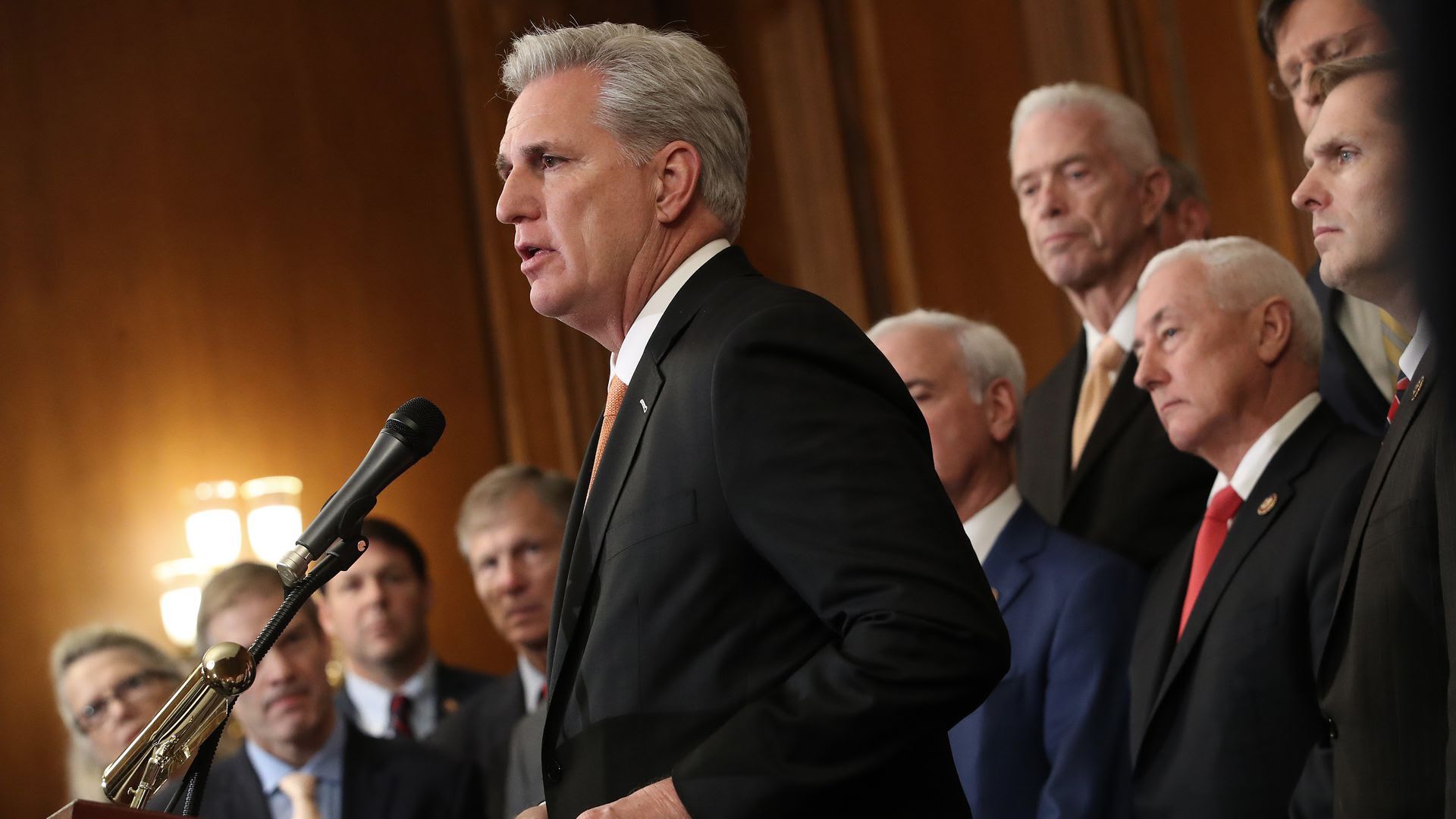Republicans' internal conflict over diversity
Add Axios as your preferred source to
see more of our stories on Google.

Kevin McCarthy speaks at a press conference held by members of the mostly white male Republican caucus, Oct. 31, 2019. Photo: Win McNamee/Getty Images
The aftermath of national protests around racial injustice is giving Republicans two strategic paths in their uphill fight to take back the majority in the House of Representatives — but those paths may be on a collision course.
The big picture: The GOP is leaning hard into courting women and people of color to be their candidates and to vote for them. They’re also running with Trump's law-and-order message to try to win back softening support with white, college-educated men. But it's hard to do both at the same time.
Driving the news: Republicans seeking to diversify their ranks have faced resistance over their handling of race relations in the U.S. — in large part thanks to Trump, who according to polling fails miserably on the issue of race.
- But McCarthy and other Republican lawmakers I interacted with on a campaign swing on the West Coast last week said violent protests around the country have been a game-changer in helping shift the conversation from racism to safety and security.
- Some white men who backed Trump in 2016 have been incredibly turned off by Trump's response to the George Floyd protests. The significance of that is huge, McCarthy says.
- Now that the conversation has turned to violent riots and Trump's push for law and order, "White males are coming back," McCarthy says. "It doesn't mean they’ve changed their views about race in America ... but now they're afraid about their safety."
- The discrepancy underscores how GOP leaders are trying to straddle opposite wings of the party — one that wants to better embrace the changing dynamics of the country and a more populist base that is self-preservative at its core.
Don't forget: Since the 2018 midterm elections, when Democrats advanced with the most diverse class of freshmen in congressional history, McCarthy redoubled his efforts to recruit more female candidates and people who are younger and more racially and ethnically diverse.
- “When you look ahead 20 years from now, our party will have to match what the country looks like," McCarthy said.
- He's also making a concerted effort to support them on the trail.
- Last week, McCarthy visited the districts of Alek Skarlatos, the 27-year-old former National Guard soldier who tackled a terrorist on a train in Paris, and Burgess Owens, the former NFL player and Trump favorite (the president called into Owens' fundraiser last week to congratulate him over McCarthy’s speakerphone) who isn’t afraid to talk about being a proud Black Republican.
- Both are scrappy candidates who face tough elections in competitive districts. They both would also add needed diversity to the party, McCarthy said.
By the numbers: 90 women, 73 minority candidates and 104 veterans will be Republicans' nominees on the ballot for November, according to data provided by McCarthy's office.
- 31% of female nominees are in the National Republican Congressional Committee's top open-target seats.
Between the lines: McCarthy sees a more diverse group of GOP freshmen as a success story in any case. “Even if we don't win the majority, we'll at least have made broad gains on the diversity front," he told me.
